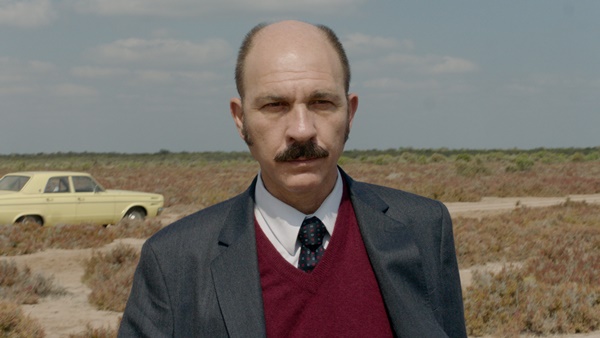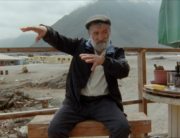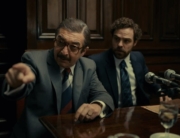In an Argentinian province during the mid-1970s, a well-regarded lawyer waits for his wife in a packed restaurant. The fact that Claudio (Dario Grandinetti) is the only person who hasn’t ordered yet seems unfair for a “strange man,” as he’s named in the credits (played by Diego Cremonesi), who impatiently insists on a table. He demands Claudio to give up the table, and the lawyer gives up his place. His defeat is temporary, because once the strange man sits down and reads the menu, the lawyer gives him a sharp lecture and humiliates him publicly. Claudio explains the reasons for the stranger’s bad attitude and predicts his rage will always make him an unhappy loser.
Anyone who has dealt with the insolence of strangers will feel tempted to applaud Claudio. It’s a jaw-dropping scene due to the flawless performances and exquisite script. Some minutes later, the thrills escalate further with the outcome of this feud. Before the movie announces its title, we already have witnessed a suicide, an act by a Good Samaritan, and a murder. Only one of those three actions is accomplished successfully.
Some movies demand patience until things get moving, while others like Rojo hook audiences immediately with a potent introduction. The only inconvenience that comes from starting with a bang is that filmmakers may feel obligated to maintain the high level in the remaining running time. This is not a problem for Benjamin Naishtat, who directs and writes his third feature film with extreme confidence.
The Argentinian director has remarked that his movie intentionally mimics the look and grammar of cinema from the 1970s, citing Francis Ford Coppola and Sidney Lumet as main influences. The film looks amazingly retro and also shares with its references the cynical portrayal of a world where even regular people lose control and cross barriers of law and morality. The lawyer in Rojo might not be so different than the surveillance expert in The Conversation (1974) or the tragicomic bank robbers in Dog Day Afternoon (1975). Nonetheless, it will be a disservice to the film to assume it’s a pale imitator of better movies. Rojo is much more than a movie that emulates a certain way of filmmaking and storytelling. It’s a respectful dialogue with the past without compromising the authenticity of its vision.
Months after the restaurant conflict, Claudio is visited by a famous detective who solves cases on television. Sinclair (Alfredo Castro) is investigating the disappearance of a man known as “the hippie,” the black sheep of a wealthy family. Even when he’s not on TV, this detective always gives a grandiloquent performance while retaining the malice of his early years as a cop. When he confronts Claudio, the arrogant lawyer finally meets a rival who can make him feel reduced and insignificant. Their scenes mirror the humiliation previously depicted, but in a reversed situation for Claudio.
It should be noted that these events are happening at the same time that the country faces the National Reorganization Process, which would lead to a fascist dictatorship supported by civilians. Simultaneously, a solar eclipse disrupts normalcy, coloring the sky (and the images in the film) in red. The phenomenon takes place during a weekend on the beach with the family, orchestrated by Claudio to avoid Sinclair for a few days and to experience the event for a few seconds, which fades away, as if nothing happened. In this moment, the undercurrent of the fear of something dangerous is the same feeling that defines the characters’ lives and their country.
On a superficial level, Rojo tells an entertaining story of a cat and mouse game between Claudio and Sinclair, elevated by two veteran actors who provide a masterful showdown. There is a weak subplot that involves Claudio’s daughter and her jealous boyfriend that still underlines some of the major themes explored by the film, like the awful things people can do when they feel humiliated. Its surrealist layers and evocative moods combine with political undertones in the service of a grand vision, where hubris is always punished as a warning for the present and words can be the most harmful weapon.







Leave A Comment